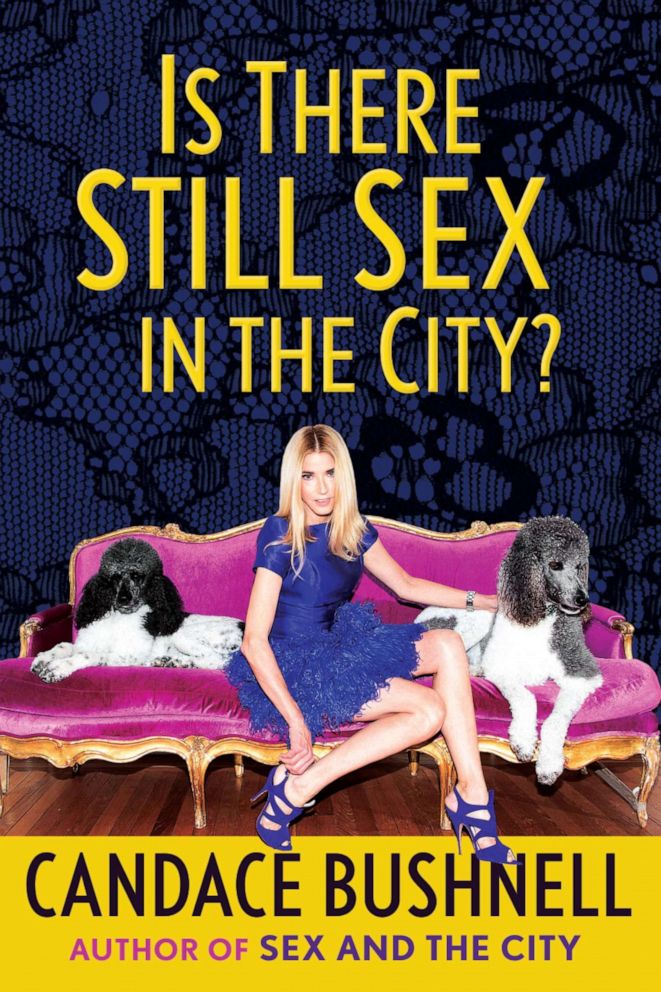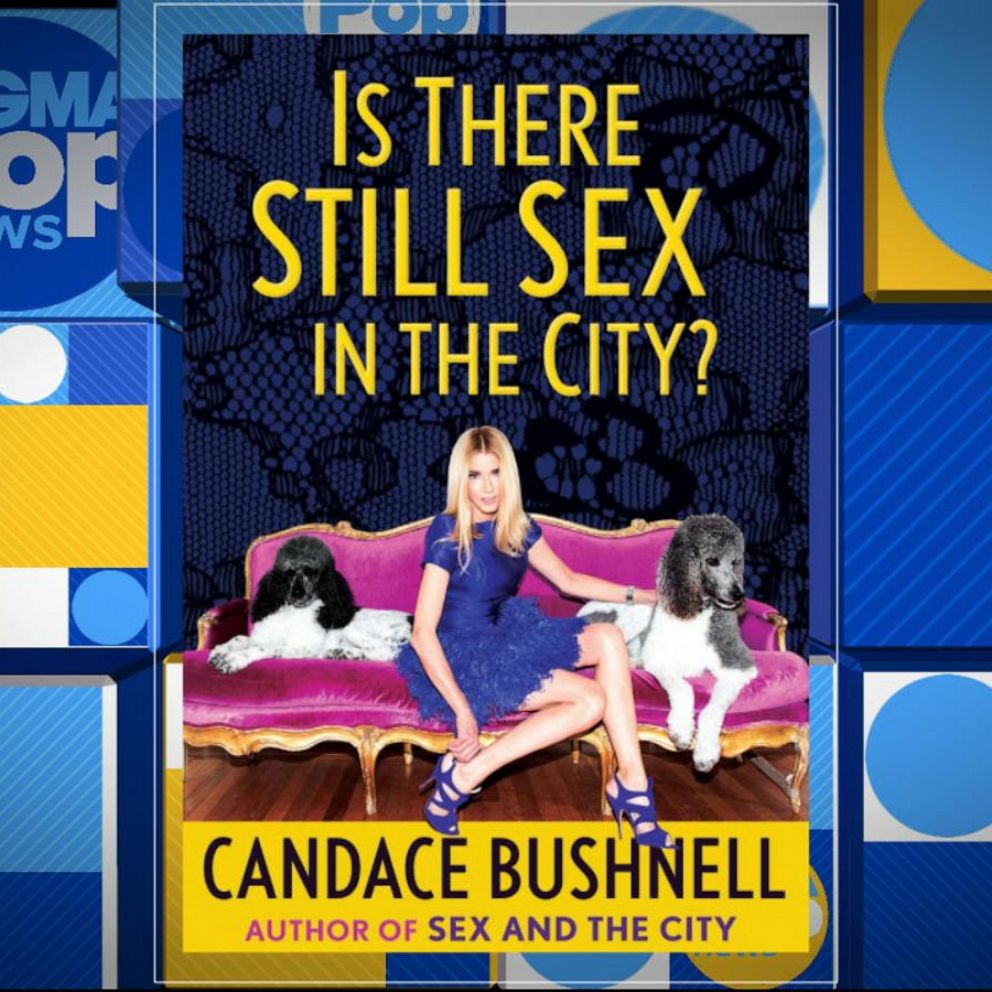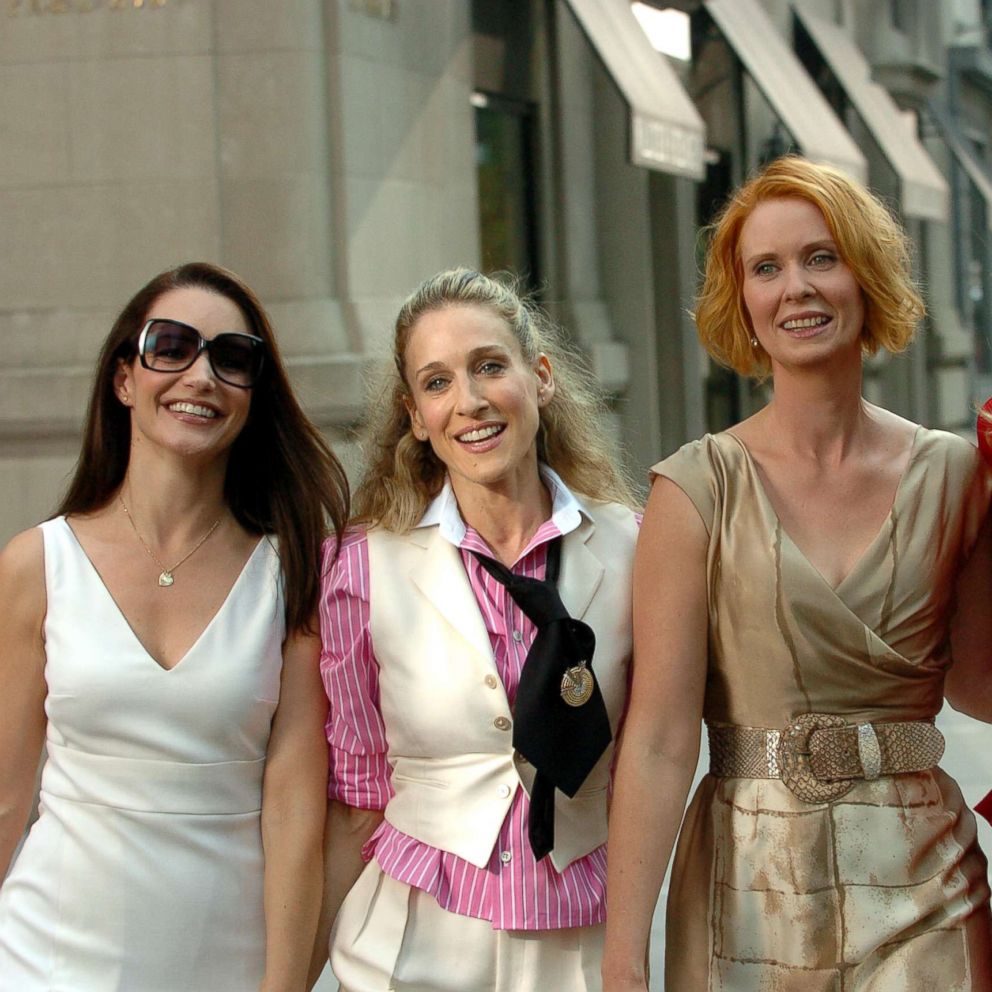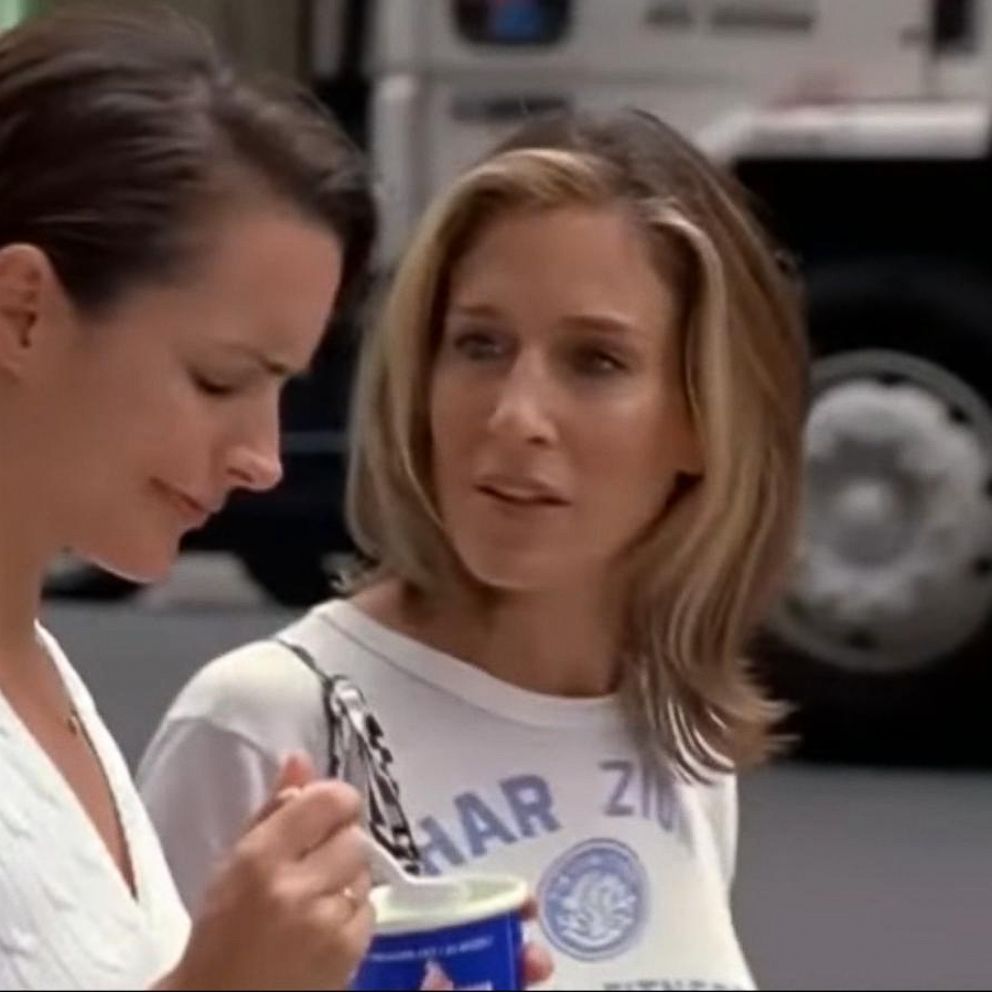Book excerpt: Candace Bushnell’s ‘Is There Still Sex in The City?’
Candace Bushnell -- the critically acclaimed best-selling author of pop culture essentials “Sex and the City,” “The Carrie Diaries,” “Lipstick Jungle” and more -- will release her new book “Is There Still Sex in the City?” on Aug. 6. The book offers a pull-no-punches social commentary on love and life among the middle-aged, from angles that include relationships, marriage, children, divorce and bereavement, as well as the pressure women face to maintain their youth and have it all.
You can read an excerpt from “Is There Still Sex in the City?” below.
Chapter One: Is There Still Sex in The City?
One of the great things about middle age is that most people become a tiny bit nicer and more forgiving. That’s because by the time you get to be middle-aged, some real stuff has happened to you. You’ve learned a few things. Like how a life that looks fine on the outside can feel lousy on the inside. And how bad stuff is going to happen to you, no matter how hard you try to be perfect. But mostly how the things you thought were safe and sacred suddenly aren’t.
Like marriage. And love. And even the city itself.
My love affair with the city had started to unravel around the time my dog dropped dead outside the mews near Washington Square Park. A cocker spaniel killed him. Not literally—technically it was an “accident.” But it felt more than coincidental: the afternoon before the sudden death, I’d run into the killer cocker in the bank.
The dog had planted its feet and was growling. Embarrassed, the dog’s minder—a young man in his early twenties with a face like a soft bun—reached down to pick it up. The dog then promptly bit him on the finger.
I shook my head. Some people are not suited for dog care and this kid was obviously one of them.
The next morning, I was up at seven thirty, priding myself on having made an early start to the day. I lived in a doorman building, so I’d often walk my dog without my keys or my cell phone, knowing I’d be back in two minutes.
That morning, when I turned the corner, I saw a small commotion at the other end of the block. Sure enough, it was the boy and the cocker.

I crossed to the other side of the street, smugly congratulating myself for having avoided that danger.
My dog took his time in the mews. In the meantime, the boy and the cocker had walked to the end of the block and crossed. The cocker spaniel was now on the same side of the street and in the next second came barreling toward us. I saw it happen in close up: The frayed old black leather collar. The worn metal hasp attaching the leash to the collar.
The dusty swirl of stiff leather particles as the hasp broke free and so did the dog.
The boy’s muscles ignited and he stumbled after the dog, managing to tackle it in his arms just before it reached my dog.
I thought surely my dog was safe and that this was yet another canine sidewalk skirmish. The city was filled with fear biters; these incidents happened all the time.
I noticed that the leash in my hand had gone slack. I turned around to look for my dog. It took me a second to realize he was lying on his side on the sidewalk.
He was shaking. As I bent down, his eyes rolled back and his tongue—his great big dog tongue—slid out of the side of his open mouth.
Tucco, named after a character in "The Good, the Bad and the Ugly," my husband’s favorite movie, was dead.
My first instinct was to become hysterical. But I quickly realized that drawing all the attention to myself wouldn’t be useful. A crowd had gathered and was offering to help, but no one knew what to do.
The dog, you see, was big. An Ibizan hound, he was twenty-nine inches at the shoulder and seventy-five pounds. About the size and shape of a small deer.
I wasn’t sure I could lift him. And that wasn’t the only problem. I had absolutely no idea what to do. I didn’t have my wallet or my cell phone and my husband was, once again, out of town.
But then someone called the nearest vet’s office and even though it wasn’t open, they were sending someone there to meet me. The vet’s office was several blocks away, and somebody hailed a taxi and somebody else picked up my dog and the boy with the killer cocker spaniel said, “I’m sorry. I hope my dog didn’t kill your dog.”
He dug around in his pocket and extracted a crumpled twenty-dollar bill. It was dirty and worn. “For the taxi,” he said as he pressed it into my hand.
I got into the taxi and someone placed the still-warm, dead dog on the seat next to me.
“Hurry, please,” I said to the driver.
One of the things you learn about middle age is that life is not a movie. In a movie, the driver would have said, “Oh my god, poor you and your poor dog!” and rushed to the animal hospital and somehow the brilliant New York City veterinarians would have revived my dog and he would have lived. But in real life, the cab driver is not having any of it. He is not having your dead dog in the back seat of his taxi.
“No dogs allowed.”
“It’s an emergency.”
“Why? Is the dog sick?”“Yes. Yes. He’s dying. Please sir. He may already be dead.” This was the wrong thing to say.
“He’s dead? I can’t have a dead dog in my taxi. For a dead dog you’ve got to call an ambulance.”
“I don’t have my cell phone,” I screamed.
The driver tried to get me to get out of the cab, but I wasn’t getting out and he wasn’t going to touch the dog so eventually he gave in. He only had to travel three blocks up Sixth Avenue, but the traffic was bumper-to-bumper. He verbally abused me all the way.
I tuned him out by reminding myself that no matter how bad my situation, there was another woman somewhere in the world who had it much worse. And besides, my dog dropping dead unexpectedly wasn’t the most terrible thing that had happened to me lately.
The year before my mother had died. Hers was another unexpected death. When she was in her fifties—my age—she took hormone replacement pills. It was a standard prescription for a woman going through menopause. The problem was, the hormones could cause breast cancer, often deadly. And so, even though there was no history of breast cancer in our family and all the women on both sides of my family had lived well into their nineties, my mother passed away at seventy-two.
Back then I’d tried to pretend it was fine, even though it wasn’t. My hair fell out and I couldn’t eat.
It took me a long time to reconcile it. But my friends had been there for me. And so, too, had my husband.
When I arrived at the animal hospital, they kindly let me use their landline to call anyone I needed. Luckily I had a few numbers memorized. Like my husband’s. I called him three times. No answer. It wasn’t yet 9:00 a.m. He didn’t start work for another thirty minutes. Where was he?
And my friend Marilyn. She arrived ten minutes later, speed walking from her apartment in Chelsea.
Marilyn hadn’t had her coffee or a shower and like me, she was dressed in sweats. Our faces unwashed, our teeth unbrushed, and our hair uncombed, we looked at each other.What now?The dog died from an aneurism. That’s what the vet thought, although she couldn’t say for sure unless they sent the dog away for an autopsy. Did I want that? No, I didn’t my friend Marilyn said.My husband had always hated the dog. I wondered if the death of Tucco was a sign.It was. I didn’t know it then, but my relationship was like an aneurism—a death waiting to happen.
*******
Three months later, in November, my husband asked for a divorce. He did it the day after one of those huge freak snowstorms. We were at my little house in Connecticut and there was no water or power. I couldn’t imagine going back to the city with him, so I stayed in the country, scooping up snow and melting it over a fire to keep the toilet going.
The divorce wrangling began. It had the usual shockingly ugly moments but compared to other people’s divorces, it was a relative breeze.
Except for one wrinkle.
The mortgage on the apartment. The old one had to be canceled and a new one drawn up in just my name.
I couldn’t imagine it would be a problem, and neither could my banker. Especially since I had enough in the bank to pay for the mortgage anyway.
My banker kept reassuring me that it was going to be okay. Right up until the appointed day finally came three months later, when I walked into the bank and sat down.
I had a bad feeling. “Well?” I said.
“I’m sorry,” he said. “It’s the algorithm.”
“I’m not going to get the mortgage, am I?”
“No,” he whispered. And suddenly, I understood. I no longer checked off any of the right boxes.
I was (a) a woman, (b) single, (c) self-employed, and (d) over fifty.
And because I had no applicable boxes, I was no longer a demographic. Which meant, in the world of algorithms, I didn’t exist.
I stood outside the bank in shock.
All the familiar landmarks were there—the glass-plate windows of the Knickerbocker through which one could see the old men in sweaters nursing their drinks at the bar. The deli where I went every morning next to the liquor store with the wound-up guy who talked nonstop about baseball. Like me, he’d been in the city for over thirty years.
I crossed the street and stared up at my building. I remembered how many times I’d passed this building when I first came to New York. I was going to NYU and Studio 54. I was nineteen years old and I’d already been published by a few of the underground newspapers that were flourishing in the city at that time.
I was so broke. But it didn’t matter because everything was happening and it was all new and exciting. I’d pass the building with the white-gloved doormen in their gray uniforms and stop to admire the garden—an actual garden with flowers and tall grasses—and I’d think, Someday, if I make it, I’m going to live here!
Now I did live there. In a corner apartment on the top floor in the same building where, coincidentally, the actor who played Mr. Big also lived. The apartment had been featured on the cover of Elle Decor, and of all my accomplishments, it was the one my mother, a skilled decorator, had loved most of all.
And now I felt like the system had defeated me. Not only could I lose my home, but I was also about to become one more of the millions of middle-aged women who would get divorced that year. Who would have to get back out there, to once again look for a man who doesn’t exist. And, like me,would likely have to find a new place to live.
I started to cry a little. But then I stopped because I realized I was too tired to cry.
I called Marilyn instead.
“Sweetie,” I said.
“Yes,” she said.
“I just wanted to let you know. I’m done.”
With that, I left Manhattan.
Excerpted from "Is There Still Sex in The City?" Copyright © 2019 by Candace Bushnell. Reprinted with the permission of the publisher, Grove Press, an imprint of Grove Atlantic, Inc. All rights reserved.








